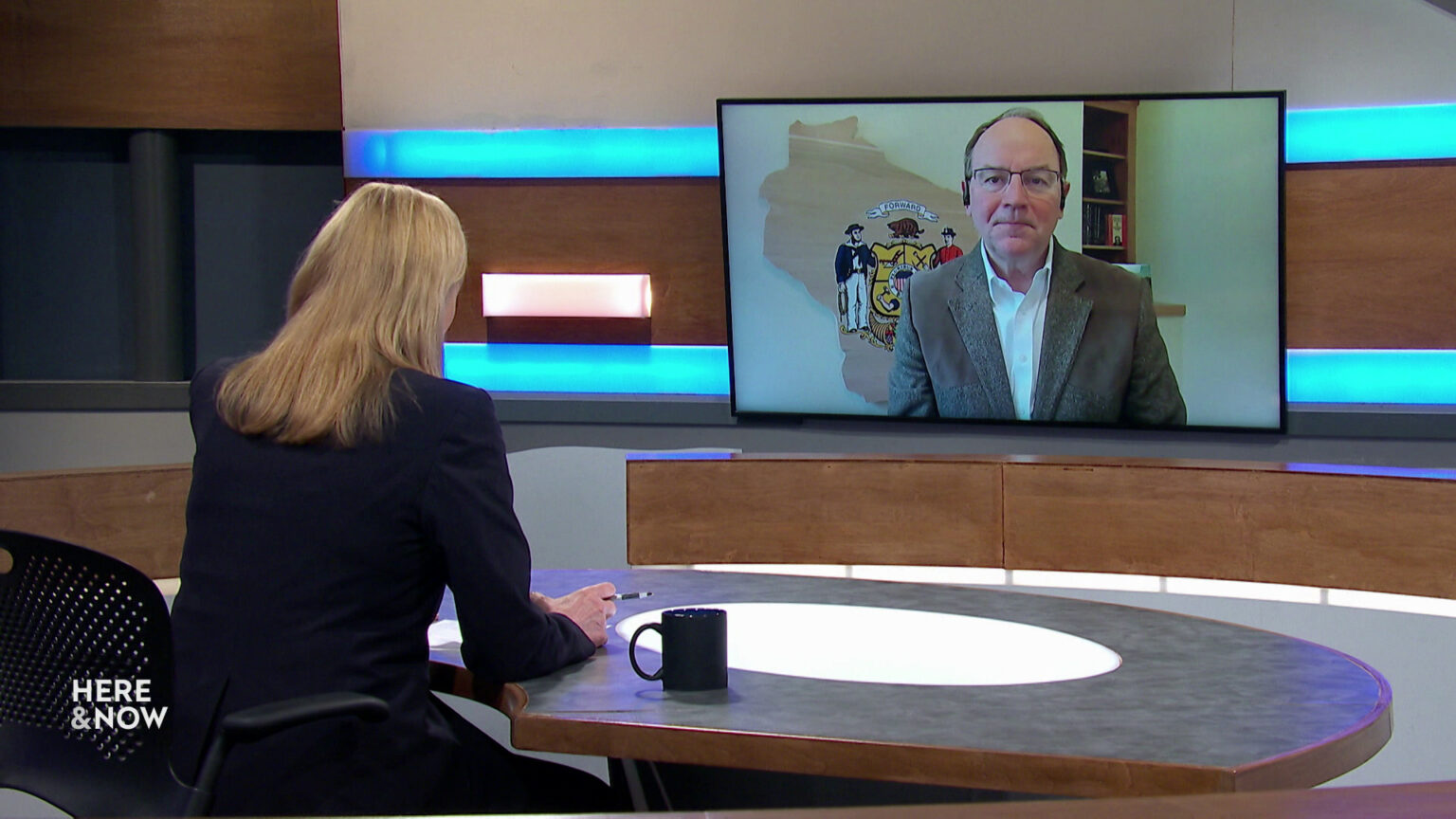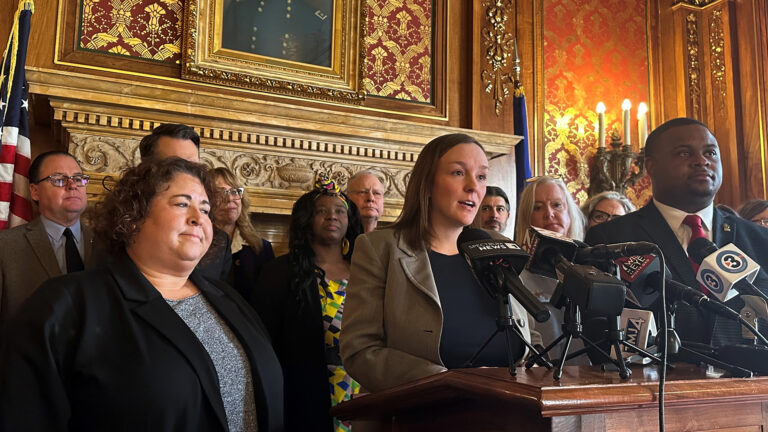'Here & Now' Highlights: US Rep. Tom Tiffany, Michael Wagner, Xia Lee
Here's what guests on the April 25, 2025 episode said about the Trump administration's first 100 days, the termination of research grants at UW-Madison and the start of tick season.
By Frederica Freyberg | Here & Now
April 28, 2025

Frederica Freyberg sits at a desk on the "Here & Now" set and faces a video monitor showing an image of Tom Tiffany.
U.S. Rep. Tom Tiffany, one member of Wisconsin’s Republican Congressional delegation, discussed his support for federal spending cuts and previewed the U.S. House budget. UW-Madison journalism professor Michael Wagner had a $5 million research grant canceled by the Trump administration and described such terminations as part of an attack on higher education. Xia Lee, a public health entomologist with the state, detailed the forecast for the summer tick season.
U.S. Rep. Tom Tiffany
R-7th Congressional District
- Rep. Tiffany said the Trump administration’s changing application of tariffs and cuts made by DOGE have led to uncertainty and he would prefer stability, but at the same time he said fiscal responsibility is important. Meanwhile, congressional Republicans are fashioning the federal budget, and many have concerns one route to finding enough spending cuts to accomodate income tax cuts would be to trim Medicaid. Asked whether he would vote for a budget that cut Medicaid, he said there has been fraudulent spending in the program but also considers other ways to cut costs.
- Tiffany: “I’ve been a strong advocate for work requirements. If you are able-bodied and you can work and you’re taking Medicaid, in other words, you’re accepting getting your health care from your fellow taxpayers when you could have your own job. I believe work requirements should be put in place, and I think that’s one place that we could say billions of dollars with the Medicaid program.”
Michael Wagner
Professor, UW-Madison School of Journalism and Mass Communications
- The Trump administration has terminated at least $12.6 million in grant funding for research at UW-Madison. Wagner had received a $5 million grant to research the accuracy of information about vaccines, but it was defunded by the National Science Foundation, because per presidential action the organization states it does not support research with the goal of combating misinformation or disinformation. Wagner said he was prepared for the termination of federal funding, but the stated reason for it comes as a jolt.
- Wagner: “To have the government say we’re not so interested in sharing things that are true, that’s really shocking. What’s even more shocking is that it’s not just happening to us. I mean, it’s a big deal to us and our team and the grant we have, but this is happening all across campus and all across the country.”
Xia Lee
Public health entomologist, Wisconsin Department of Health Services
- A new season for ticks in Wisconsin has started and is shaping up to be an average year in terms of their numbers. Lee said the deer tick, also called the black-legged tick, is the most common in the state and responsible for tick-borne diseases like Lyme disease. He also described another disease carried by the deer tick called the Powassan virus, which while deadly is very rare and present in just 1% of the ticks in the state.
- Lee: “Powassan disease is a disease that can be transmitted by the black-legged tick, or the deer tick. and it can be very fatal in some cases. There are some cases where people can develop severe symptoms, such as encephalitis, and in rare cases, people can die from this as well.”
Watch new episodes of Here & Now at 7:30 p.m. on Fridays.
Editor’s note: PBS Wisconsin is a service of the University of Wisconsin-Madison and the Wisconsin Educational Communications Board.
 Passport
Passport











Follow Us